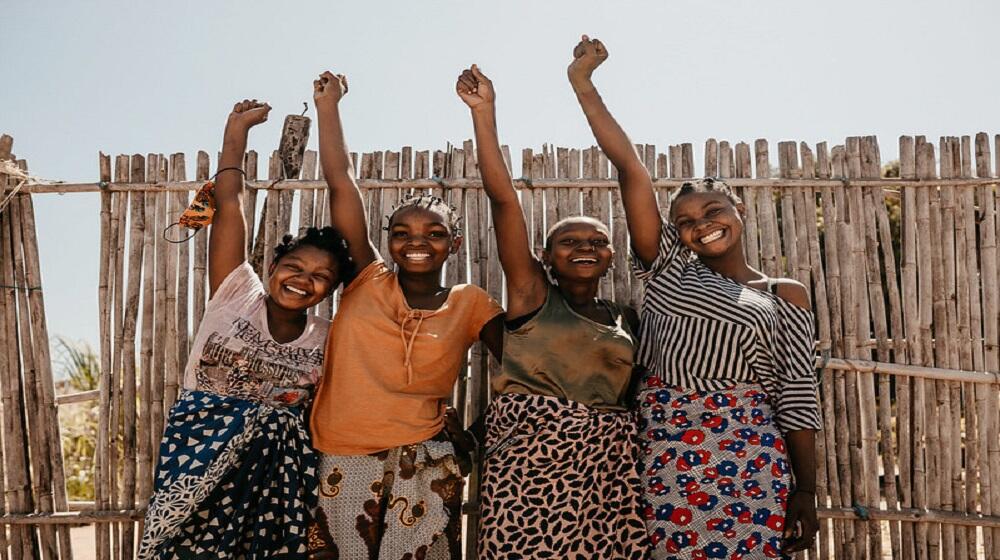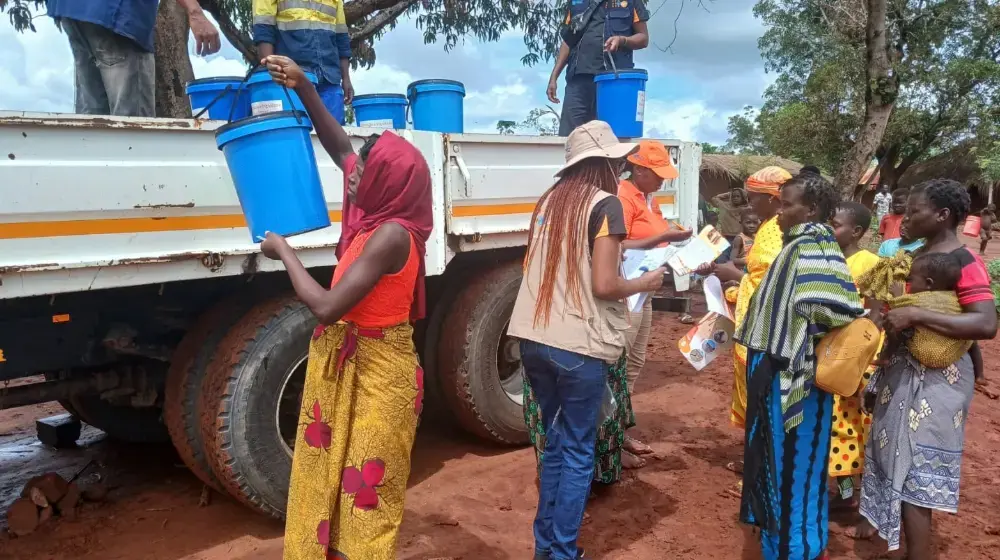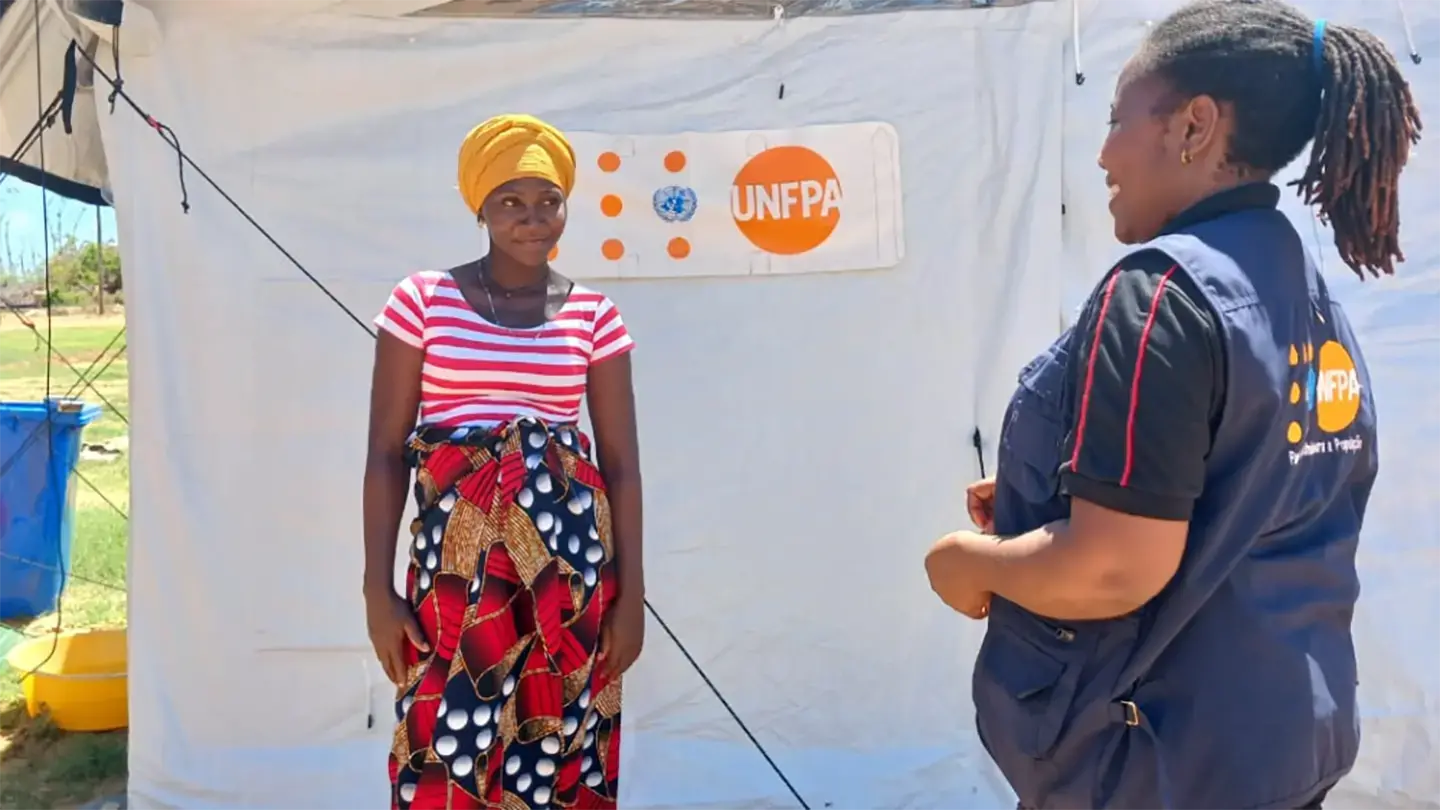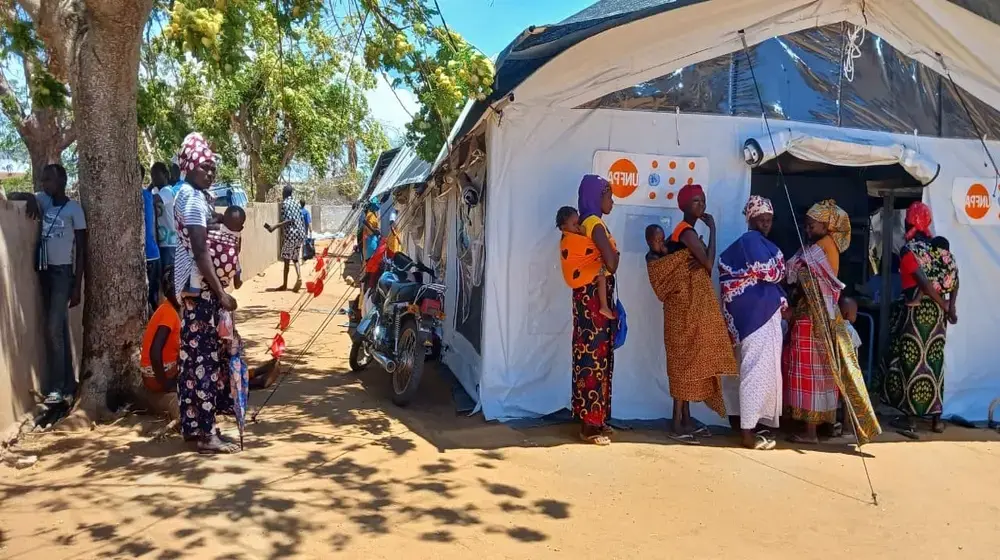“Despite 5 days waiting to get out, fleeing Palma district with nothing, a 3-day boat trip to Pemba district, the girls we met still dream of being nurses, teachers, doctors - including one girl who birthed twins last month after escaping the violence in her 5th month of pregnancy. They deserve a brighter future!” - Andrea M. Wojnar, UNFPA Mozambique Resident Representative
Maputo, Mozambique - More than 732,000 people have been internally displaced (as of April 2021) in the northern provinces of Mozambique due to either violence or environmental disaster - including the devastating 2019 Cyclone Kenneth. UNFPA has been working with local authorities and partners to increase the availability of, and access to, life-saving sexual and reproductive health services, prevent and respond to gender-based violence, address COVID-19, and mitigate its secondary impacts on women and girls.
Following her visit to Ethiopia, Ms. Shoko Arakaki, Director of UNFPA’s Humanitarian Office, visited the Mozambican province of Cabo Delgado which has experienced the compound threats of conflict, cyclones, COVID-19, and cholera. Upon arrival, she met the Governor of the Province, Mr. Valige Tauabo, who stated that UNFPA’s presence in the province is essential, as the agency’s supported interventions have served to promote behavior change among youth and adolescents. Mr. Tauabo lauded the agency’s efforts to ensure that the necessary aid reaches the most vulnerable populations.
The UNFPA Humanitarian Director traveled to Metuge district where over 125,000 displaced persons, double the local population, have taken shelter in displacement sites or with host communities. With 50% of maternal mortalities occurring during humanitarian crises, continuity of reproductive health services is crucial for women and girls. UNFPA works with the provincial health authorities to ensure that life-saving equipment and commodities remain accessible even after a crisis. While in the district, Ms. Arakaki visited the Metuge health facility where she was able to provide two new mothers with mama kits containing essential items such as soap, sanitary pads, an infant bathtub, and water buckets for health and hygiene needs.
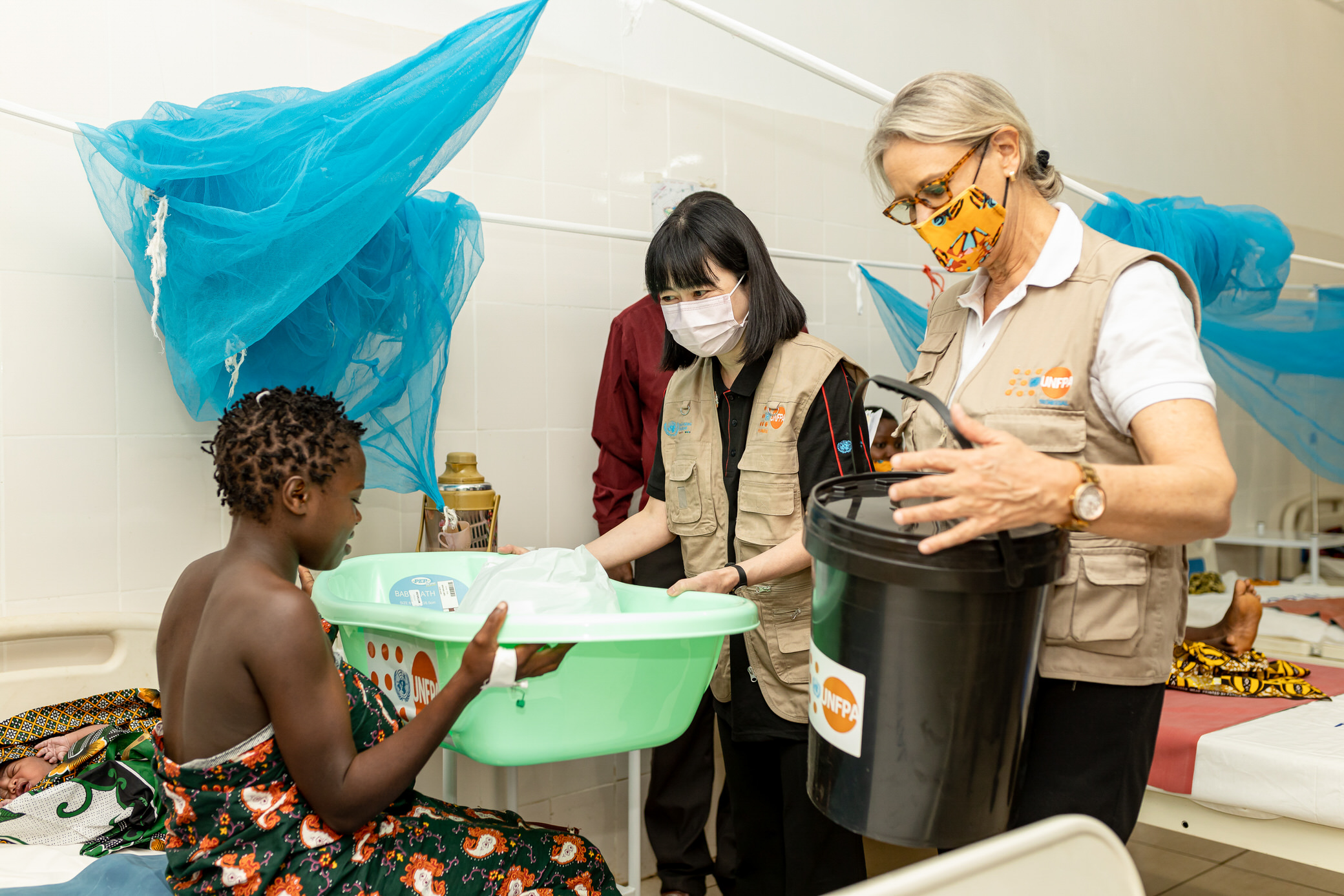
and Ms. Wojnar, UNFPA Country Representative ©Mbuto Machili/UNFPA Mozambique
Several of the new mothers Ms. Arakaki encountered were only fourteen years old, a reminder that gender equality and girls' sexual and reproductive rights are especially crucial during conflict and humanitarian crises. To support young girls in similar situations, and to mitigate other harmful practices faced by displaced women and girls, UNFPA is supporting the Government of Mozambique and civil society partners to establish and maintain women-friendly spaces in several districts of Cabo Delgado.
In these safe spaces, women can participate in varying stress-relieving and income-generating activities and often take part in awareness sessions on gender-based violence response and prevention, sexual and reproductive health, and COVID-19. Accompanied by the UNFPA Representative in Mozambique, Ms. Andrea M. Wojnar, Ms. Arakaki visited a women-friendly space in Ngalane village, Metuge district. The women expressed their gratitude for the safe space where they take part in sewing and agro-processing classes that allow them to produce items like face masks and nutritious banana chips and allow the women to generate income.
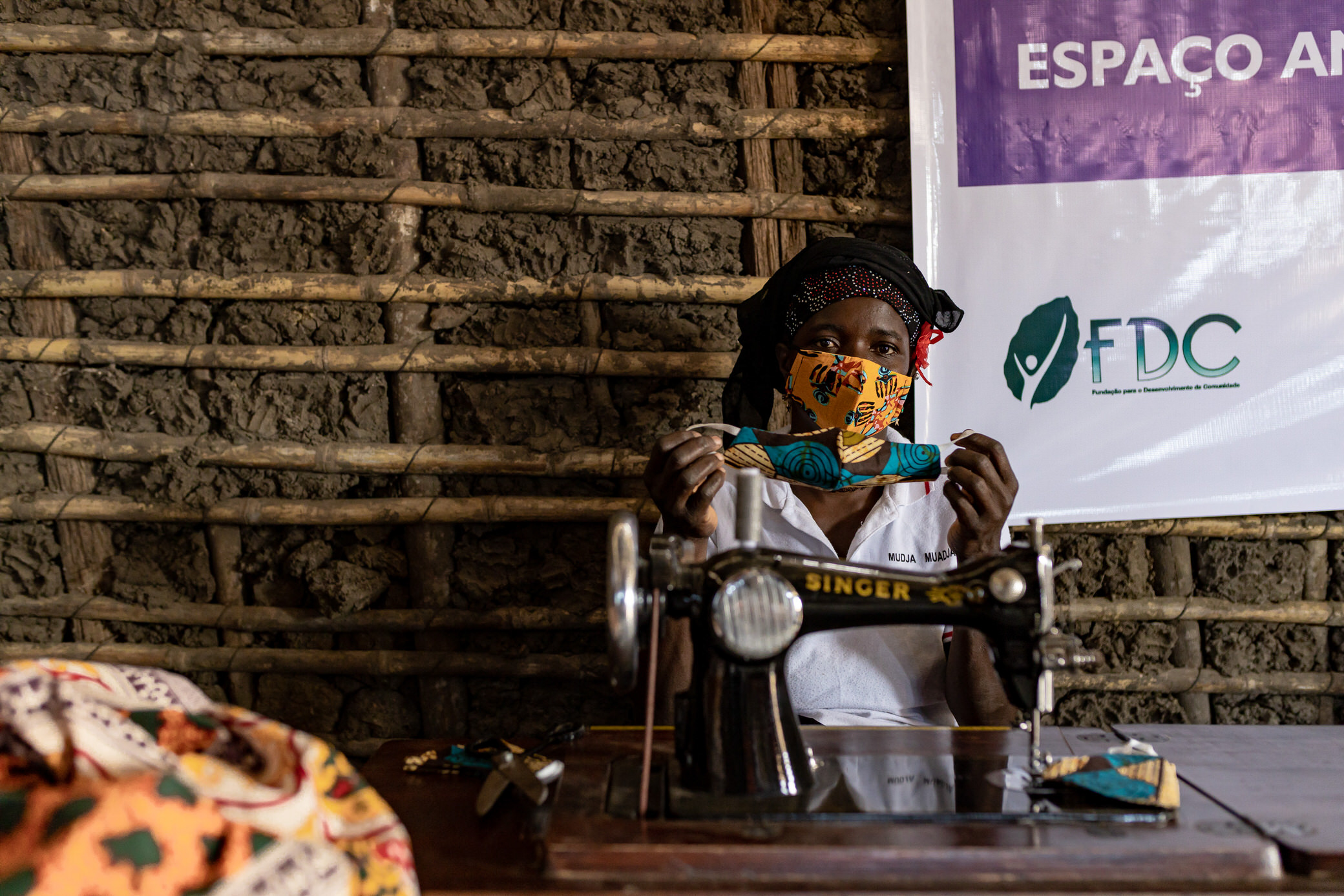
women-friendly space ©Mbuto Machili/UNFPA Mozambique
In a country facing conflict, climate change, the COVID-19 pandemic, and food insecurity, multi-sectoral efforts are crucial to enable the achievement of the three transformative goals: zero unmet need for family planning, zero preventable maternal mortality, and zero gender-based violence and harmful practices. While in the capital city of Maputo, the Humanitarian Director met with key partners such as the President of the National Institute of Disaster Management and Risk Reduction, development partners, and the United Nations Country Team, to reiterate UNFPA Mozambique's commitment to achieving the three transformative goals by focusing on women and girls and working across the triple nexus from humanitarian response to resilience building.
At the end of her mission, Ms. Arakaki met with the UNFPA Country Office staff where she relayed that “in spite of the significant challenges faced, the impact of UNFPA’s efforts can be seen and felt on the ground.” She urged the team to continue to find innovative ways to provide relief to those affected by humanitarian crises by remaining accountable to affected populations and empowering women and youth-led local organizations.

